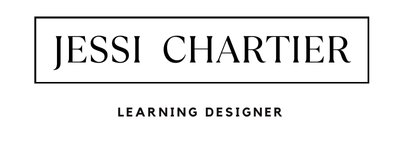A reflection on Paulo Freire, our current collective fear, and the possibility of renewal
The Moment We’re In
Everywhere you look, people seem tired. Not just physically, but emotionally. It’s hard to escape the feeling that we’re living through a time when things are coming apart in our politics, our trust in one another, even our sense of what’s true. Add to it the rush of new technologies like AI, and it’s no wonder many of us feel more like spectators than participants in our own future.
It’s tempting to give in to the idea that things are too complicated, that the systems are too big, that our voices don’t matter anymore. A quiet story running underneath things these days: fatalism. The feeling that no matter what we do, it won’t make a difference.
So how do we change the story? Return agency to ourselves without burning ourselves out?
That’s where Paulo Freire comes in. Freire, a Brazilian educator and philosopher, believed we can do just that. His work was rooted in a simple but radical idea: people have the power to read the world, and once we can read it, we can rewrite it.
Freire called it becoming “critical consciousness”. It’s what happens when you begin to notice how things fit together, how decisions are made, who benefits, who gets left out, and realize you can be part of changing it.
Awareness, reflection, and action is what real “reading the world” looks like, and this, is just another word for life-long learning.
Becoming Conscious: How to Read the World
Okay, bear with me for a moment. If we think of learning as the process of becoming more critically conscious, then it’s not something that only happens in schools. It’s something we’re all doing all the time at work, at home, online, in our neighborhoods.
When people organize to protect their environment, when a group starts a conversation about bias in AI, when someone listens to a story that changes how they see another person, that’s learning; that’s education. It’s the learning that happens when we pay attention to the world and decide to care about it.
The trouble is, many of us were taught to think of education as something that happens to us. We get trapped in this mental model of education only happens when a teacher (usually someone older with an authority) teaches a student. It’s an object-recipient mental model. Freire called this the “banking model” of education, where knowledge is something deposited into us, and we simply withdraw it when needed.
But real learning doesn’t work like that. It’s not passive. It’s about discovering what we can know together. It’s the conversations about politics at your Alderman’s open house night, it’s the argument about the “spirit of the law” over a board game’s rules, it’s the collaboration with your friend group to decide how best to collectively support a friend whose parent just died.
Freire believed that teachers and students learn from each other in dialogue, in open conversation, in curiosity, in questioning. This kind of learning isn’t about authority; it’s about partnership. It’s not about having the answers; it’s about learning to ask better questions.
Let’s take it back to AI for a moment. For all the fear around AI, there’s also an enormous opportunity: to use these tools to make learning more open, more collaborative, more democratic if we directly become aware of its problems, address them, and be willing to learn.
Developed and used wisely (and continually critiqued and improved), technology can help us connect across distances, learn from new voices, and challenge what we think we know. It can expand the circle of who gets to participate in knowledge-making.
The danger isn’t AI itself. The danger is when we let it replace our curiosity and critical consciousness; when we stop thinking, stop questioning, and start assuming that someone else (or something else) is holding watch.
If we want to stay human in a digital world, we can’t give up the habit of thinking together. We can’t give up the practice of being both learners and educators.
Because if we truly believe in lifelong learning, then being our own educator isn’t a luxury, it’s how we stay sane.
Toward Renewal: Democracy as a Way of Learning
Freire once wrote that to learn is to hope. He didn’t mean wishful thinking. He meant that every act of learning is also an act of faith that understanding can lead to change, and that people, together, can do what seems impossible alone.
That’s what makes Freire’s ideas so powerful right now. He helps us see democracy (the political involvement of citizens) not as something that happens in government buildings, but as something we practice, in how we listen, how we speak, and how we learn from one another. Democracy isn’t a system; it’s a way of being in relationship. It’s how we stay connected even when we disagree. It’s how we build the future with, not for, each other.
In that sense, real learning is democracy in action. It’s how we resist the pull of despair, how we refuse to give our agency away to fear or automation or authority. It’s how we remind ourselves that the world is still being written, and that every one of us holds the pen.
So maybe the question for us now isn’t “What will happen to us?”
Maybe it’s, “What kind of learners will we choose to become?”
Freire’s work reminds us that education was never about control or compliance. It was about becoming more fully human.
And if we can remember that if we can keep learning together, with courage and hope then renewal is already happening.
Closing Thought
Freire once said, “We make the road by walking.” Maybe that’s all education really is: a long, collective act of walking toward understanding.
We don’t need to have it all figured out. We just need to stay aware, stay curious, and keep walking together.
